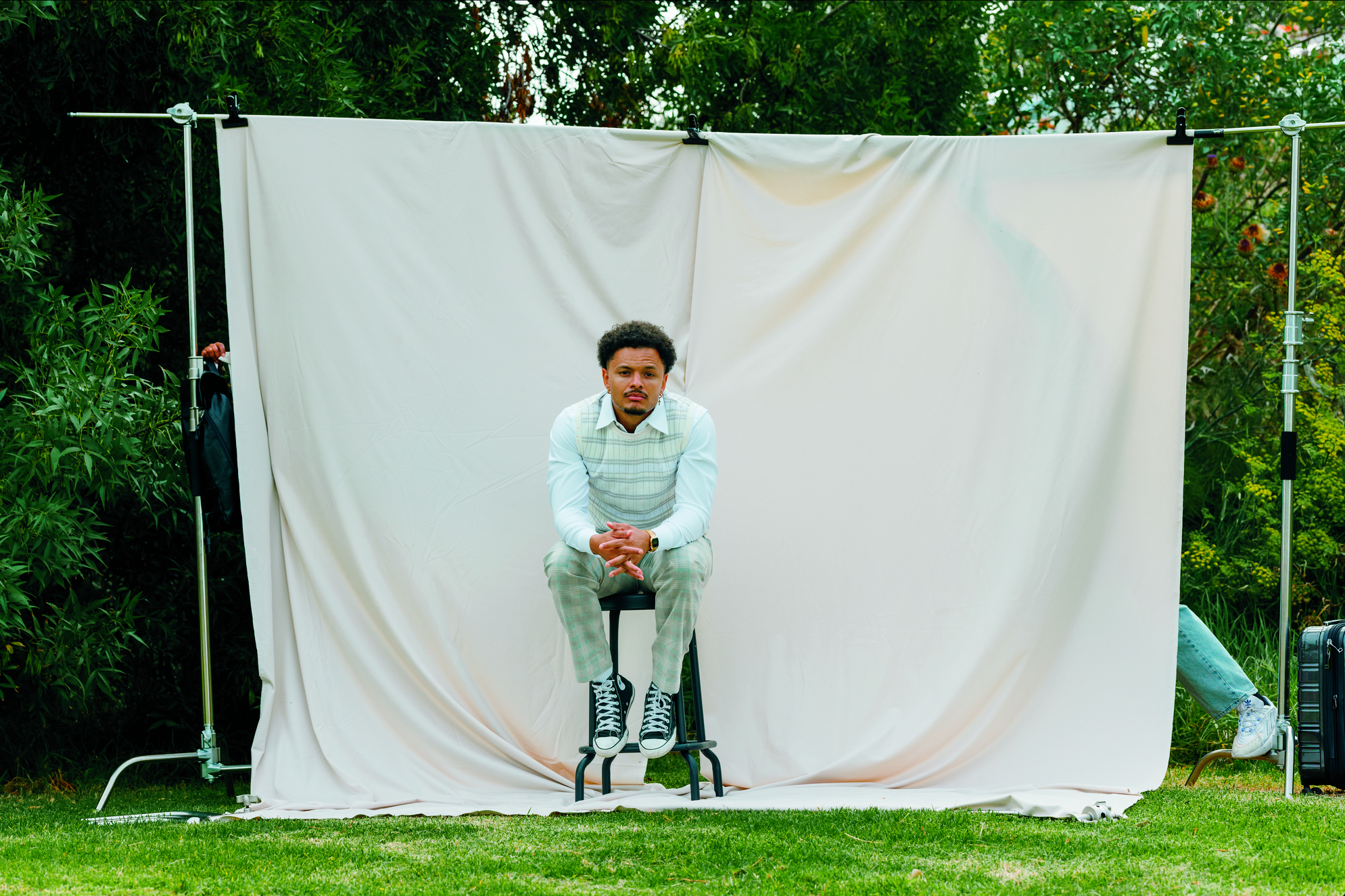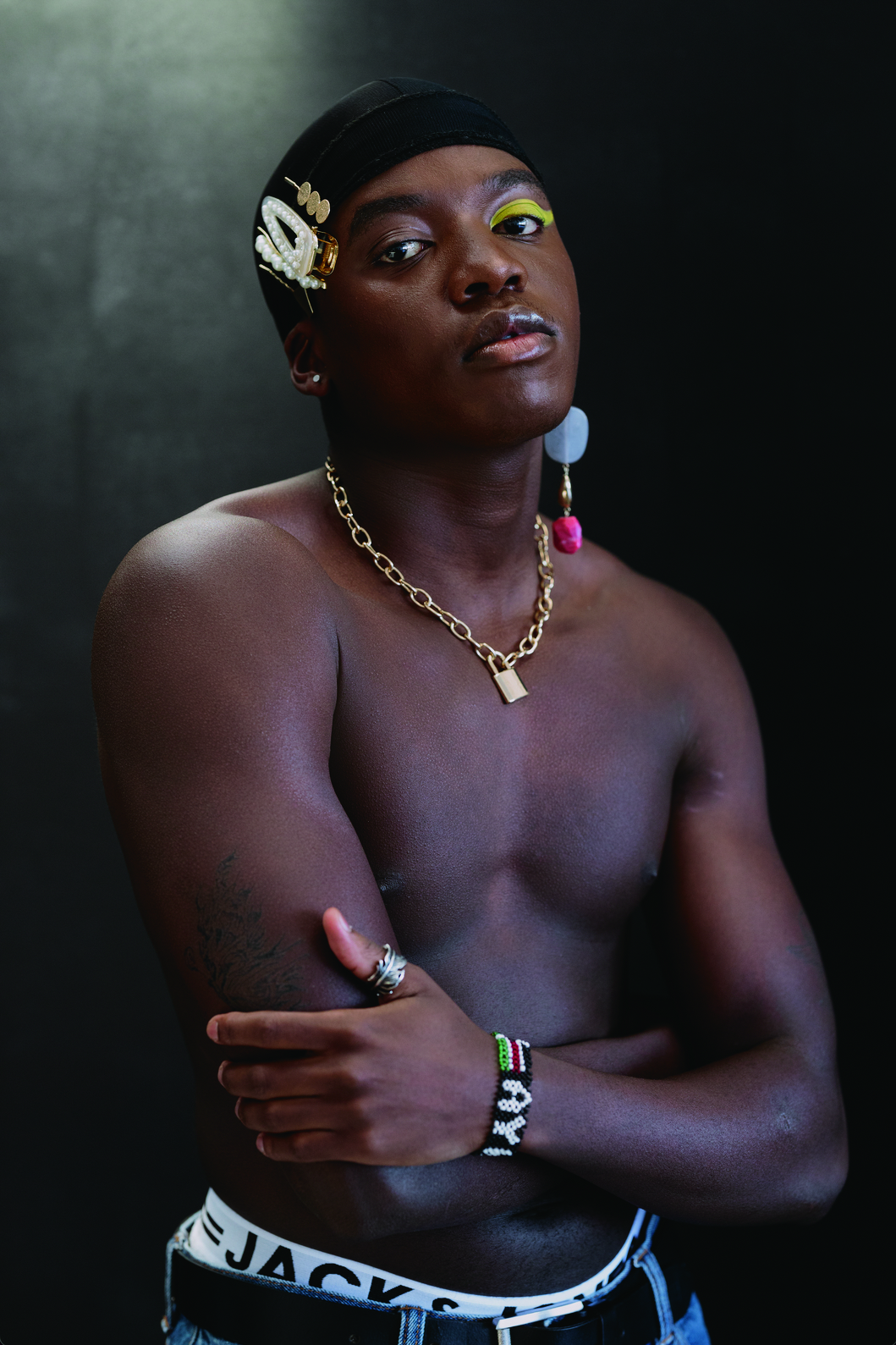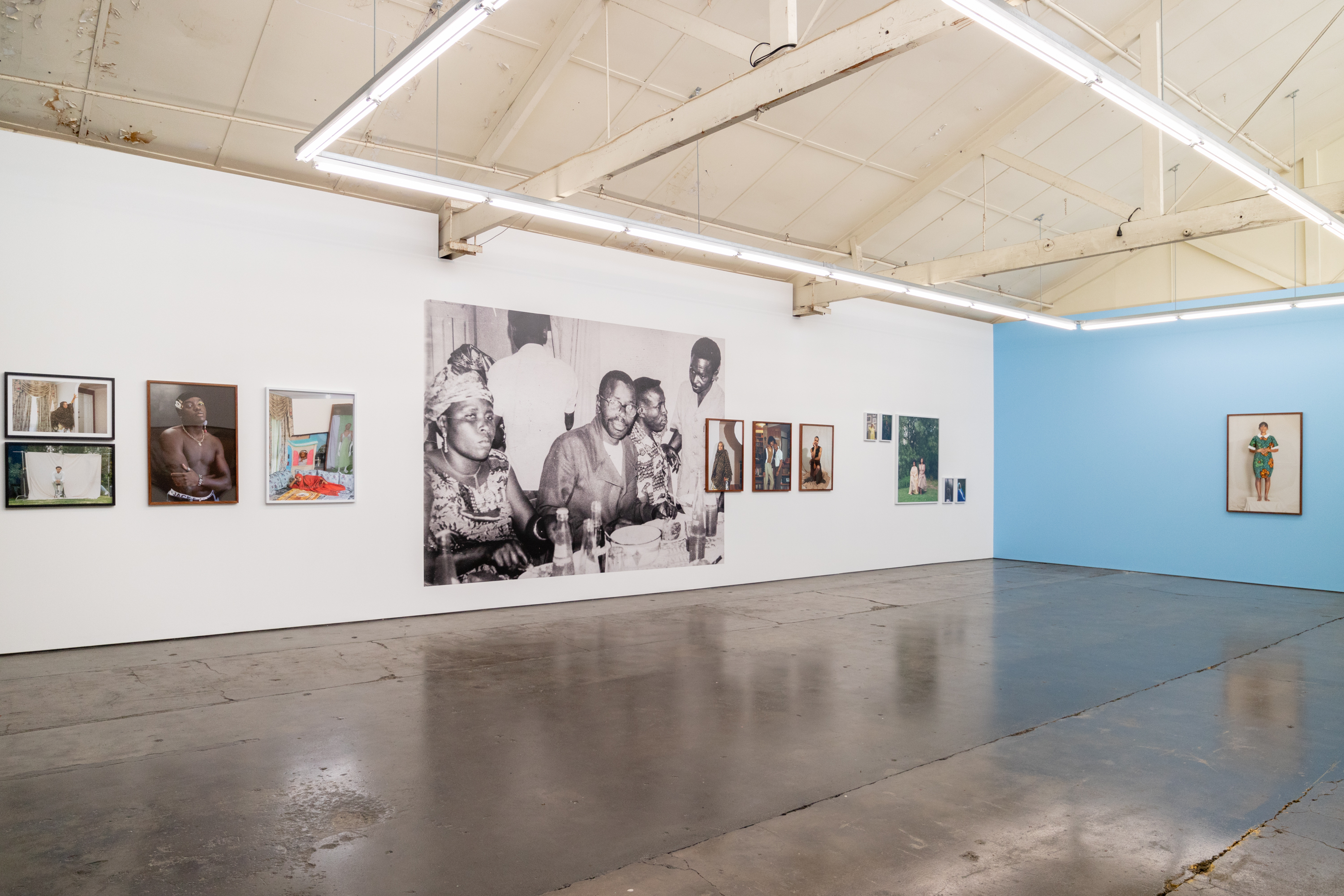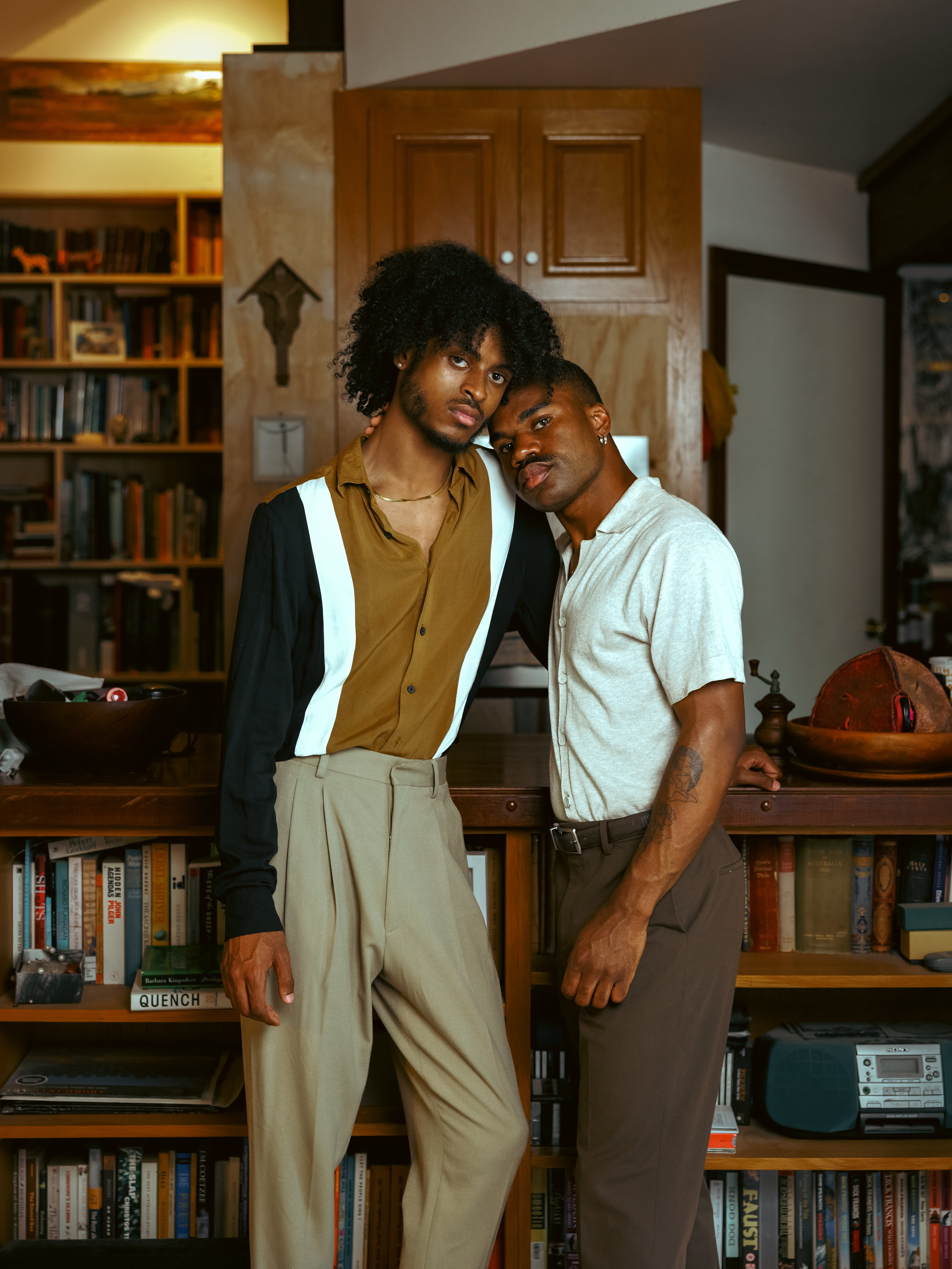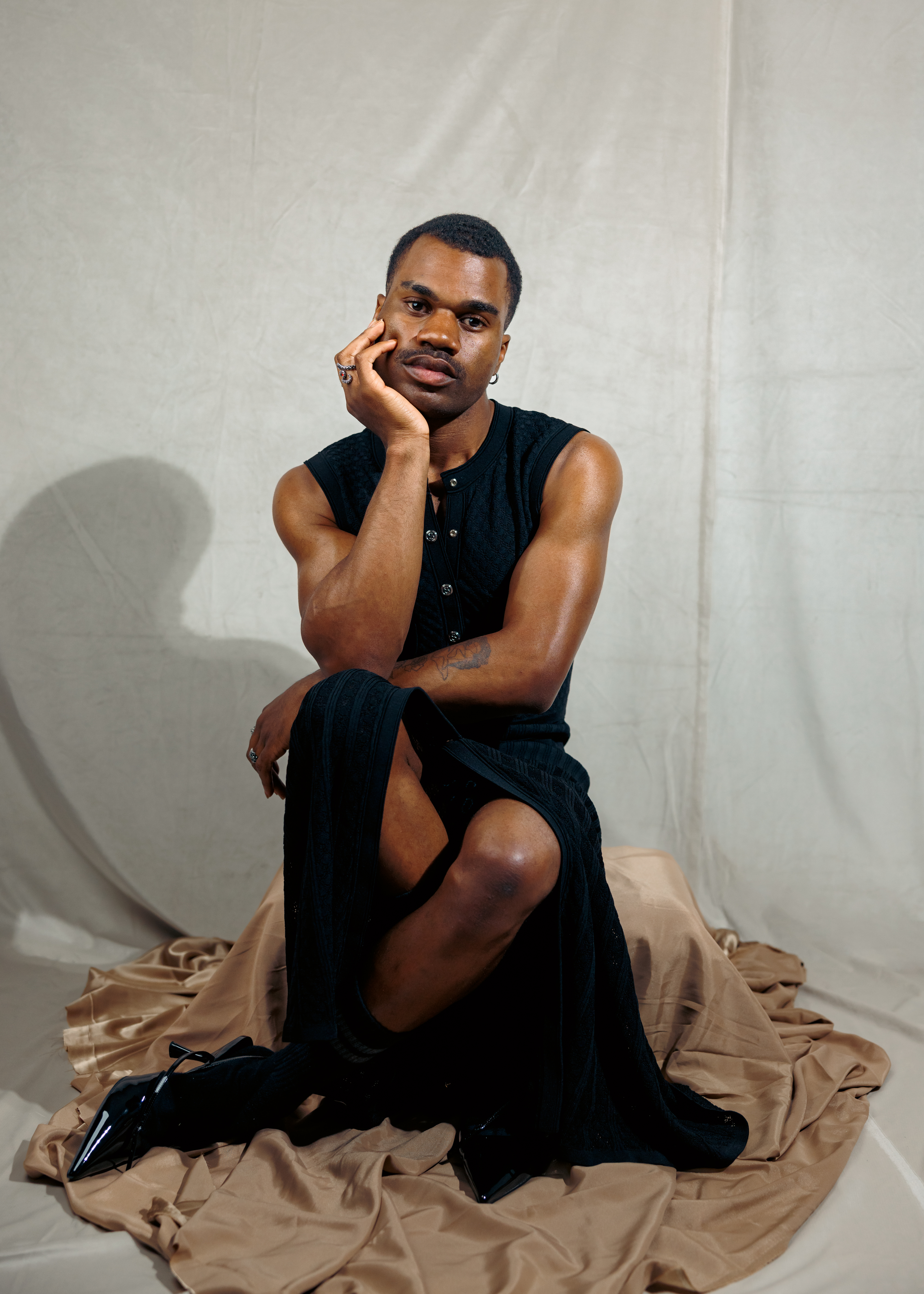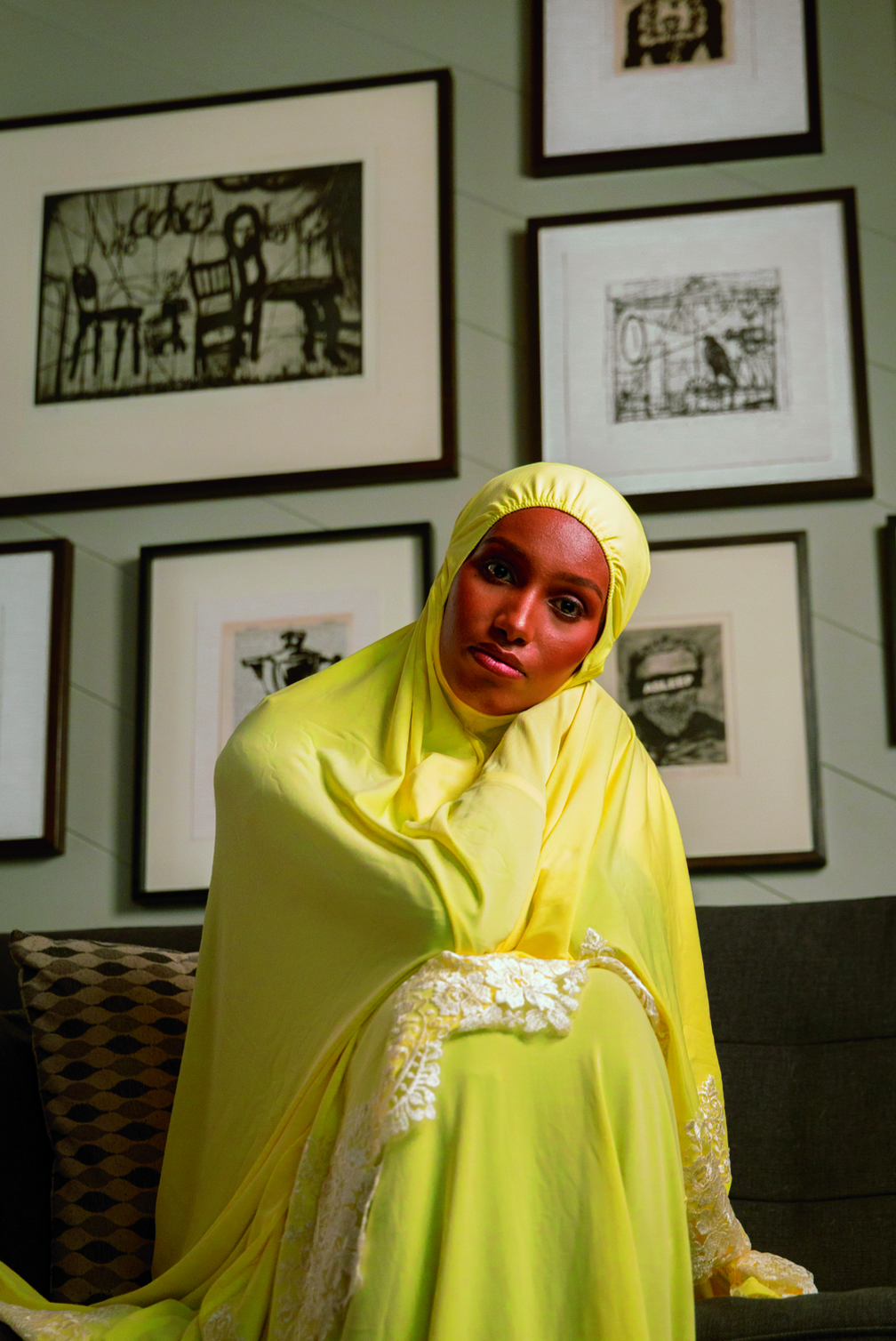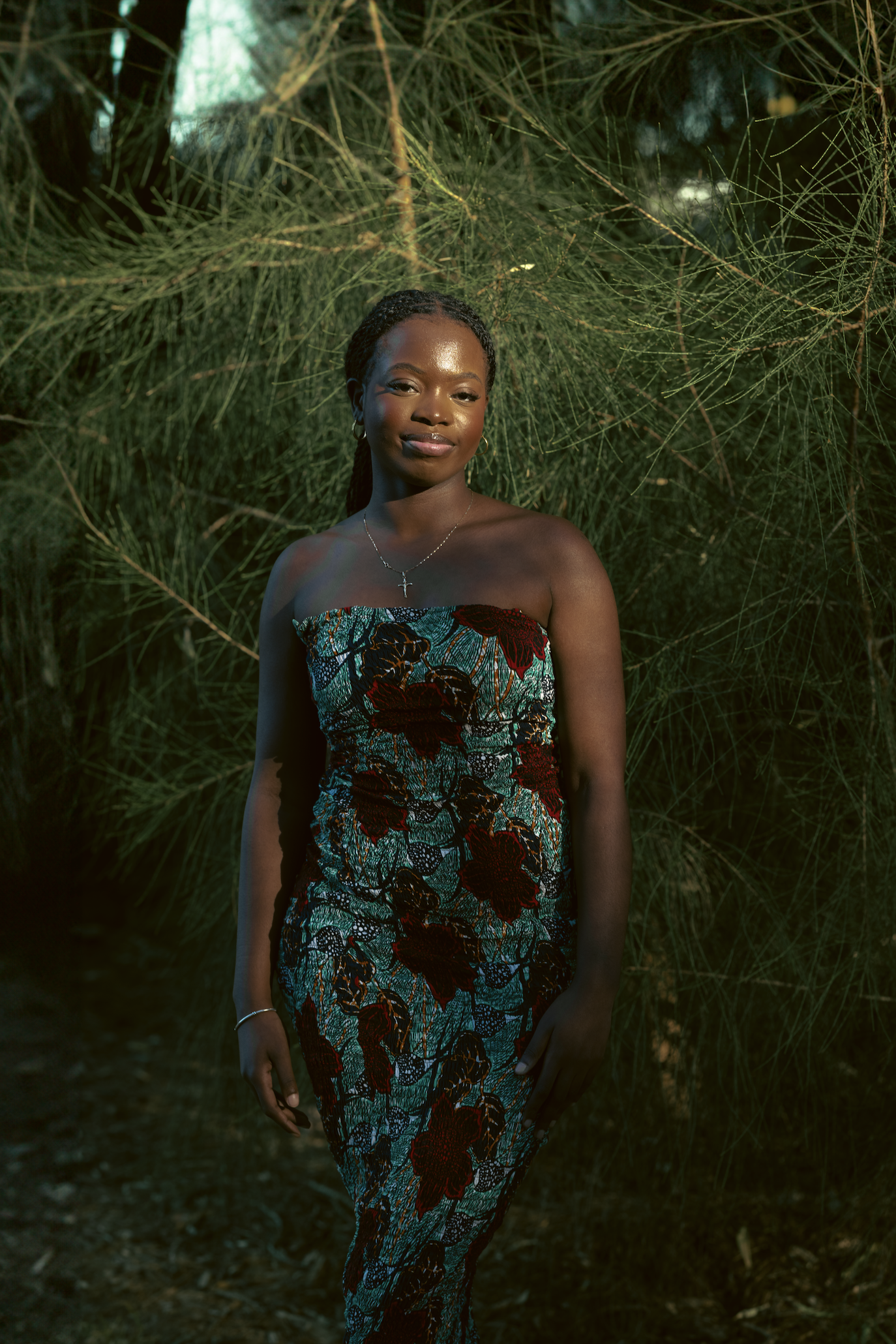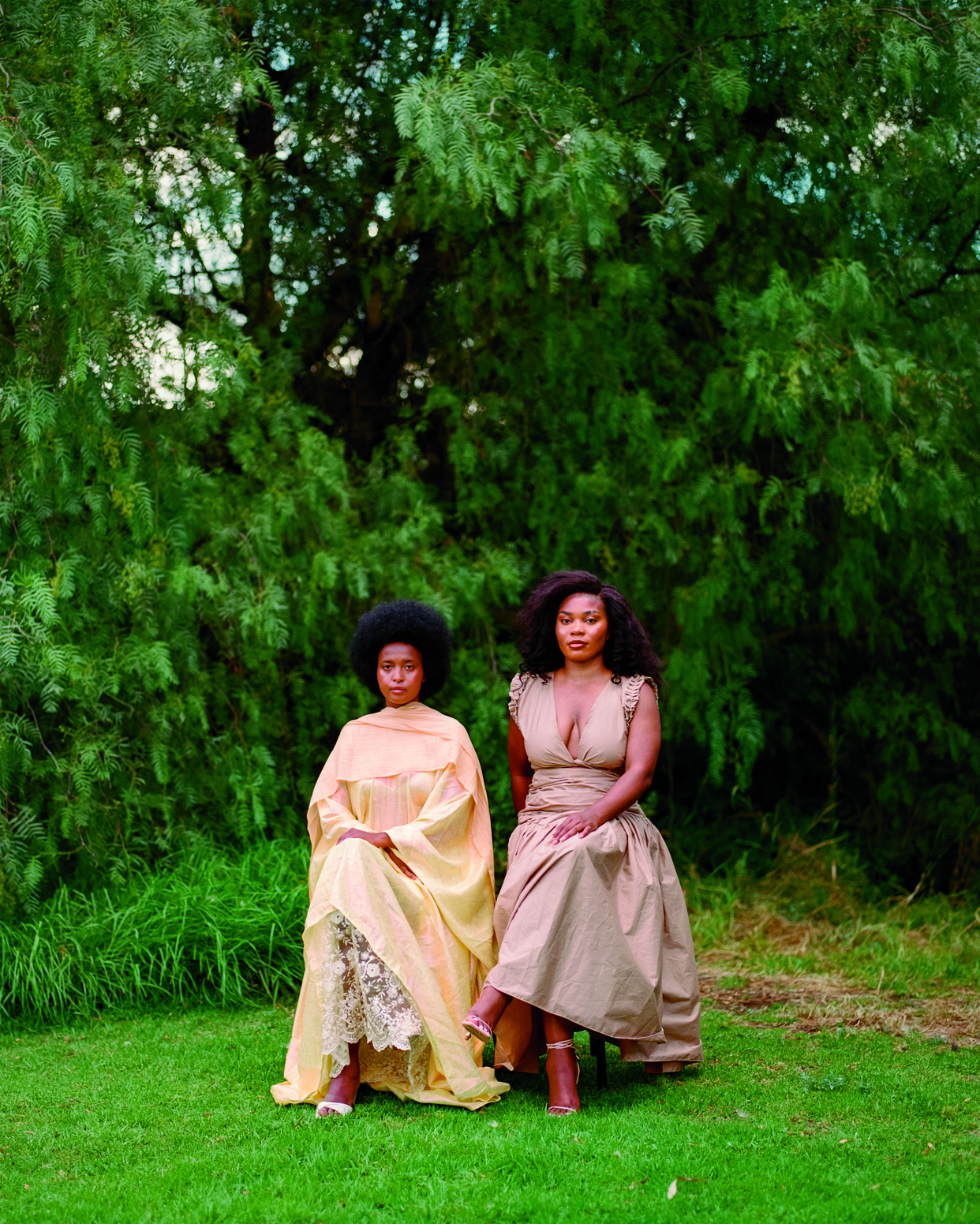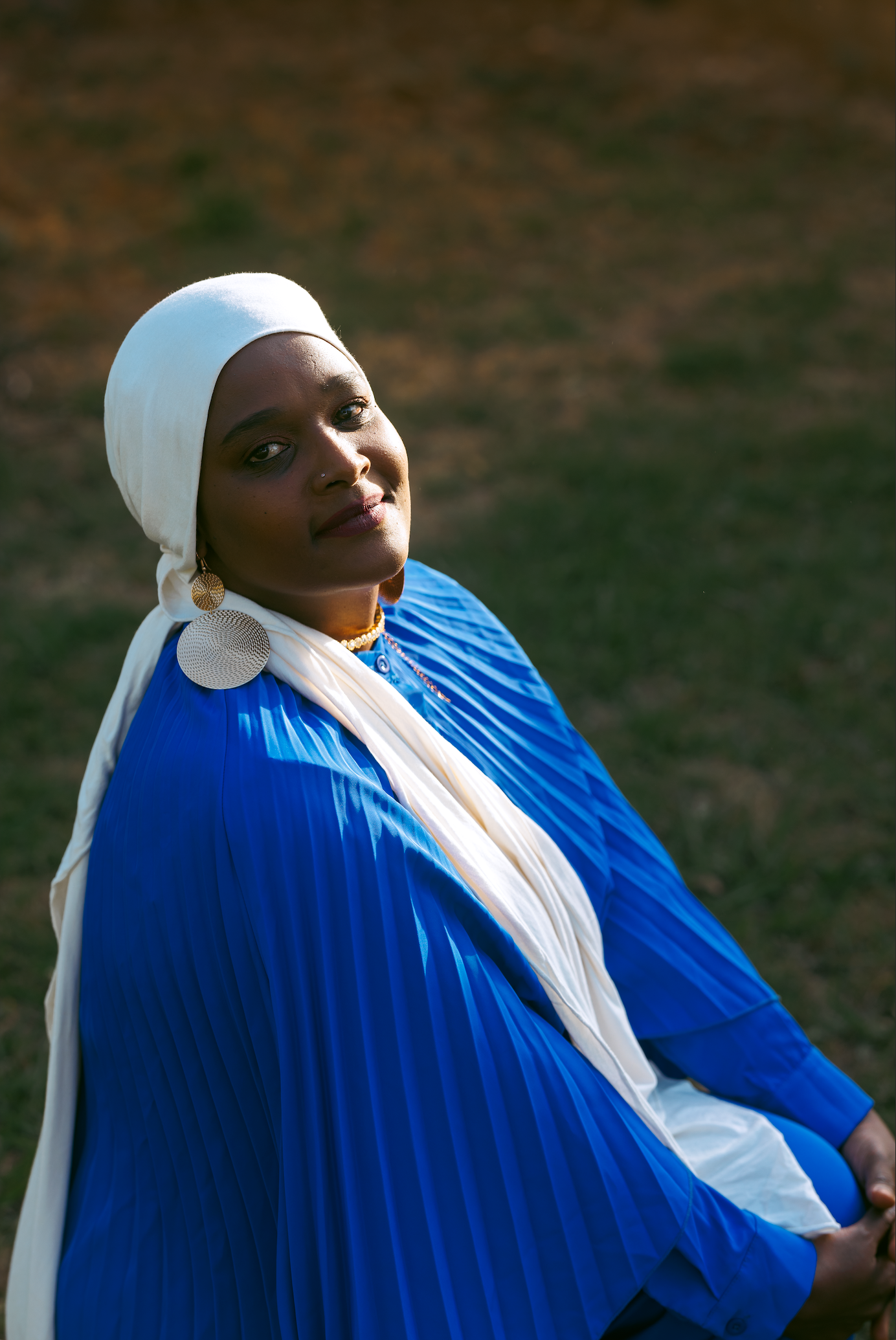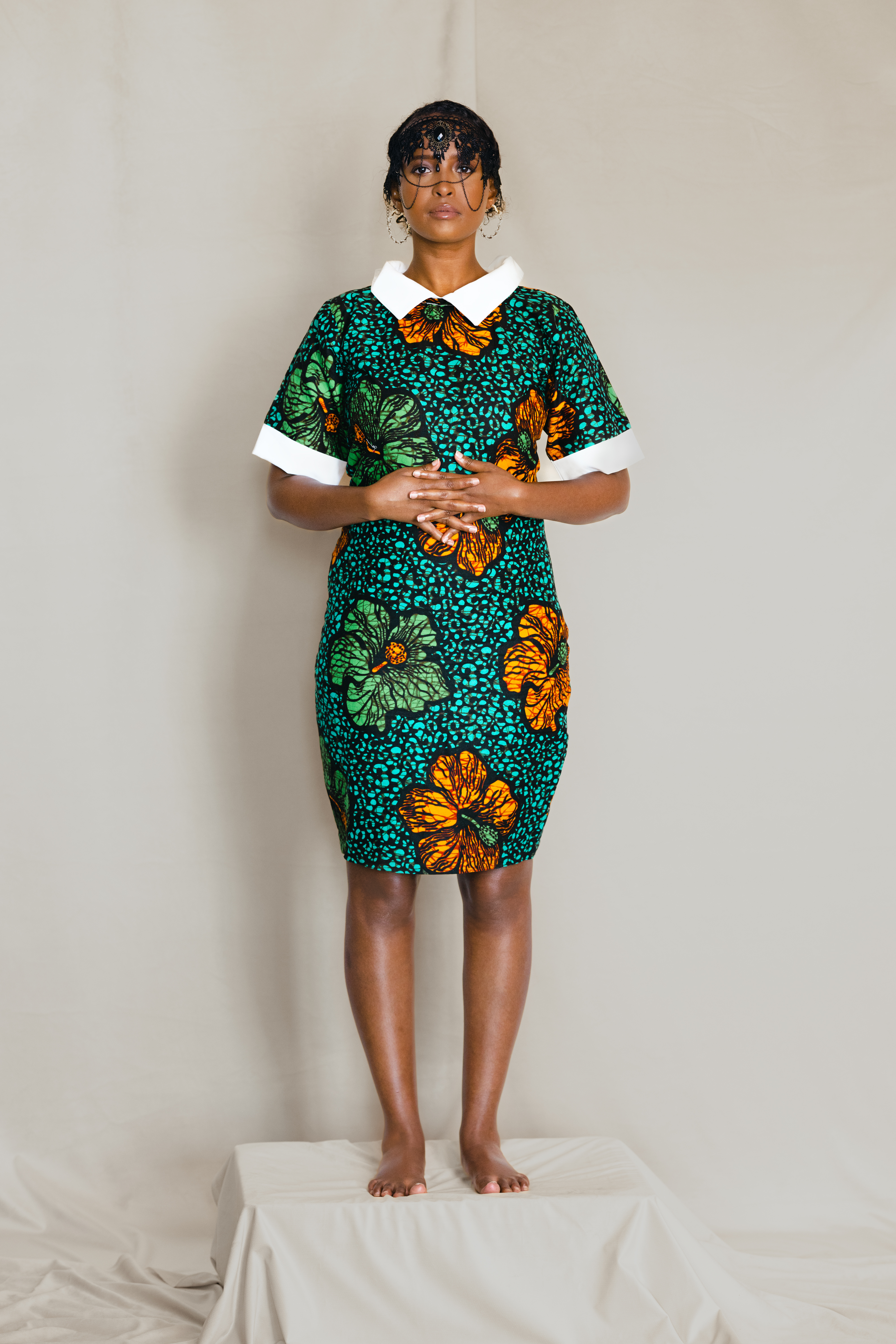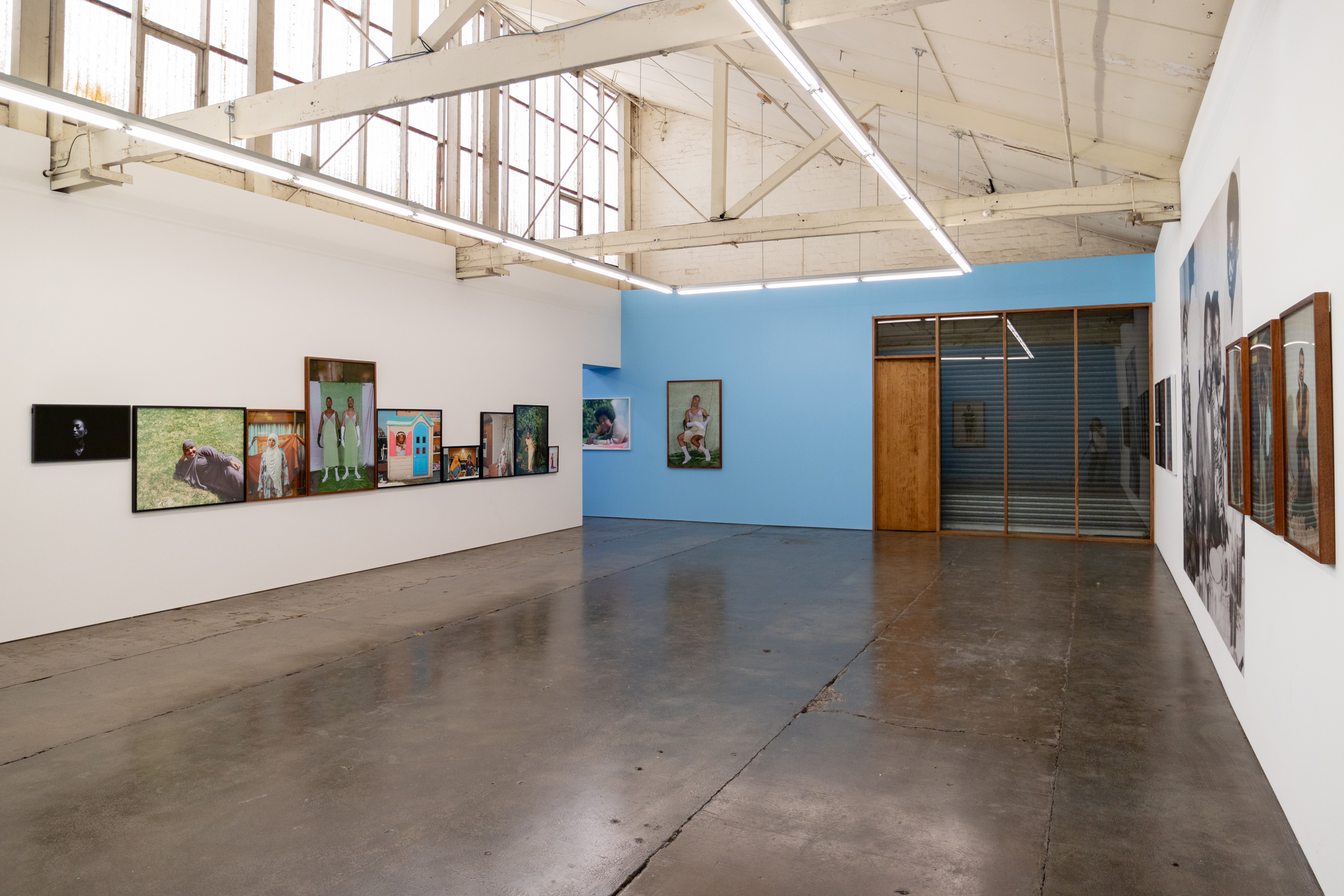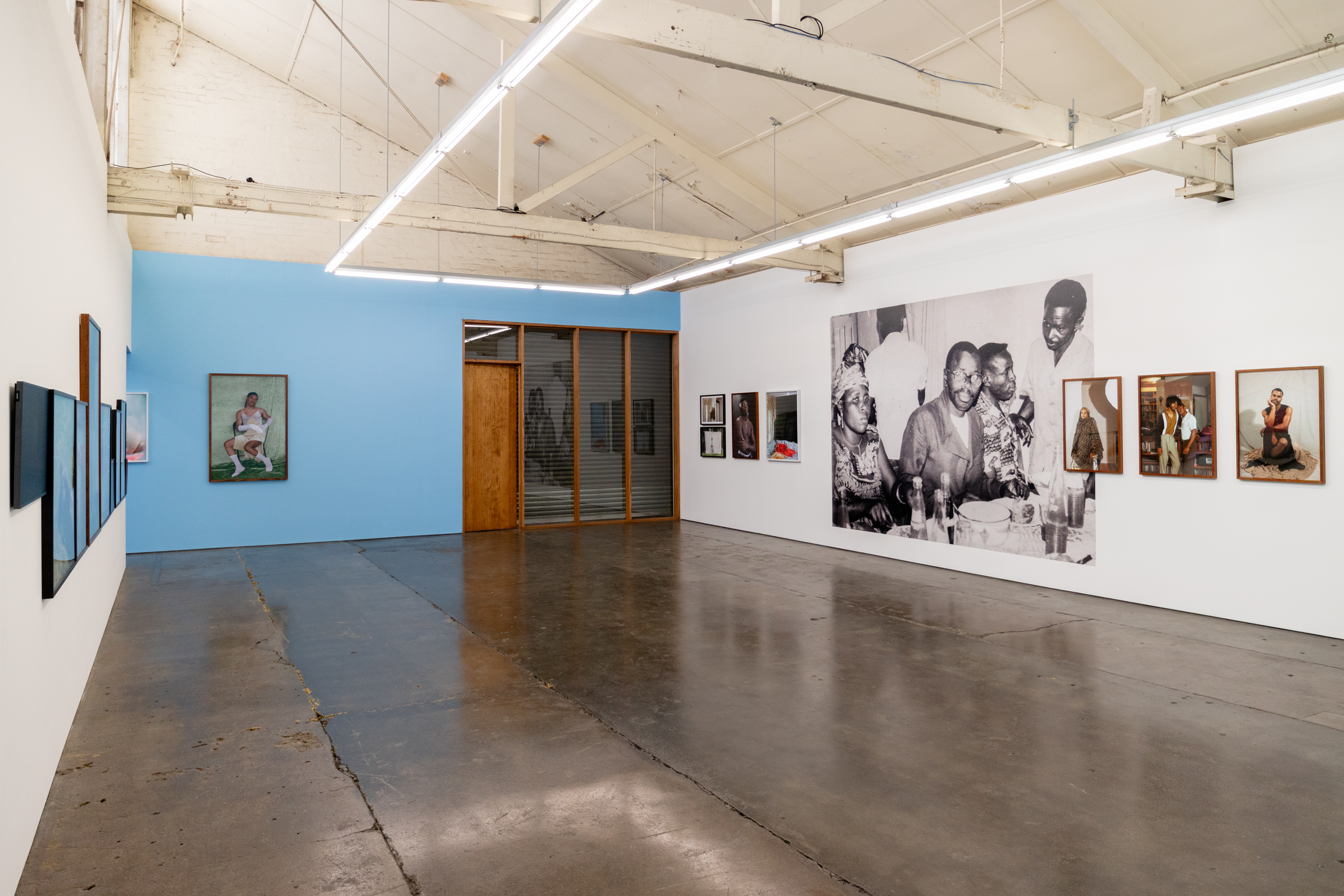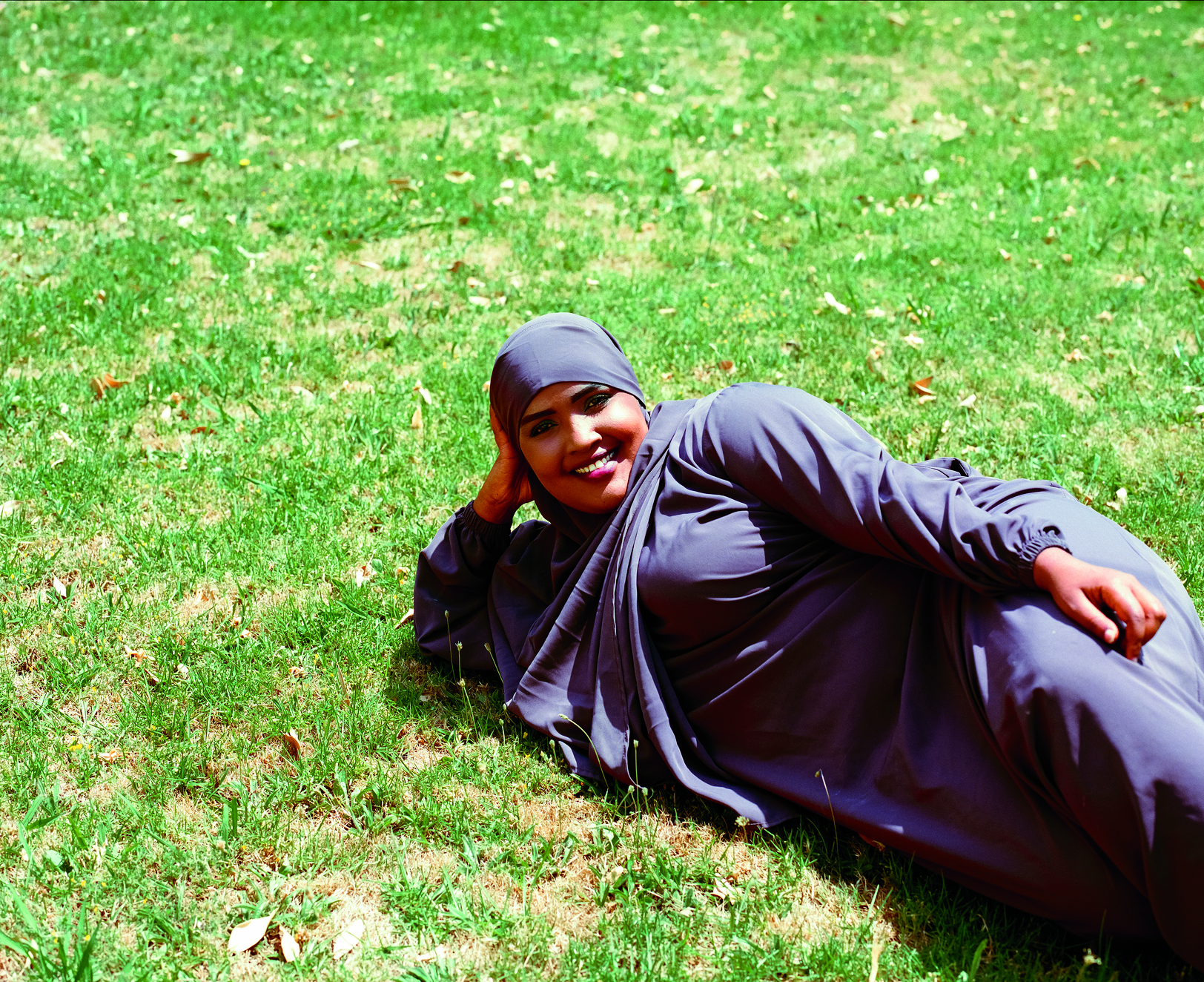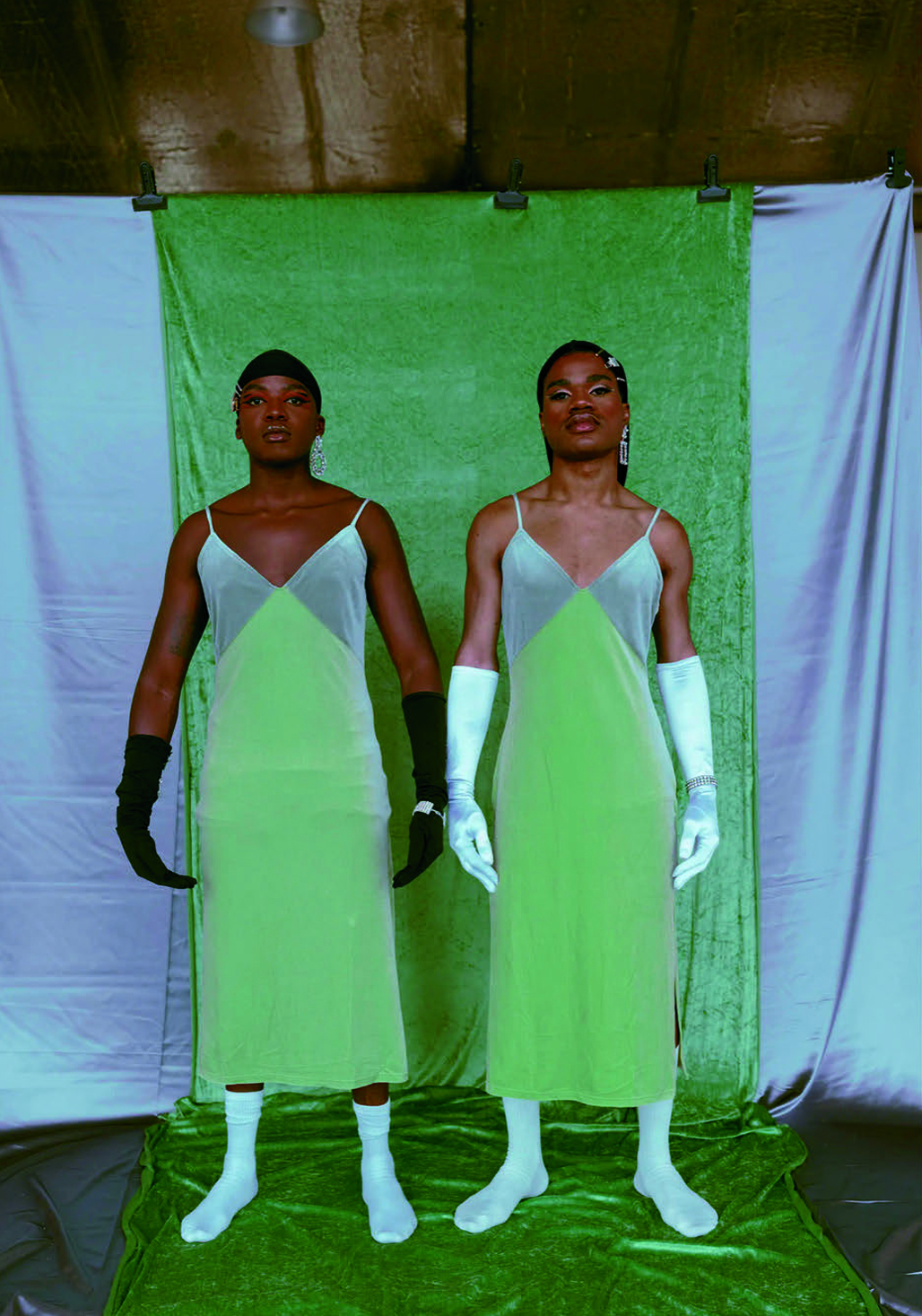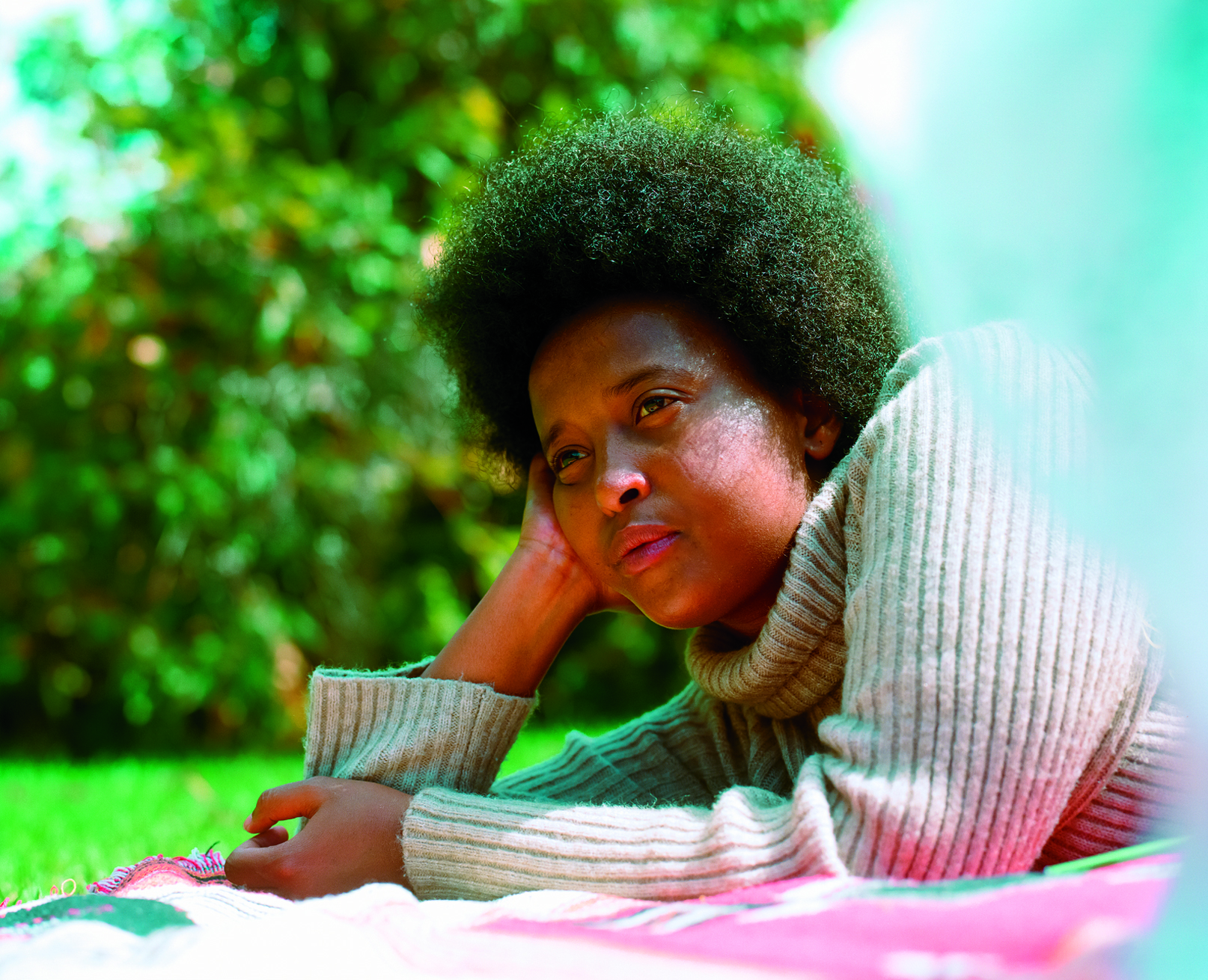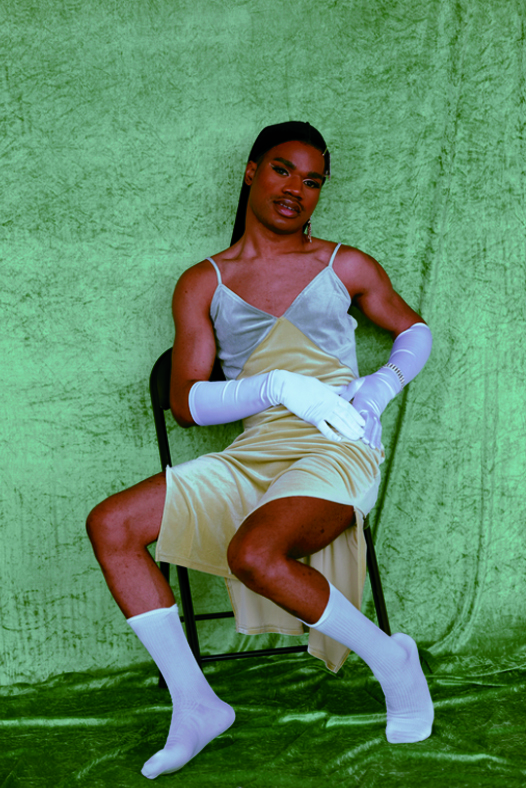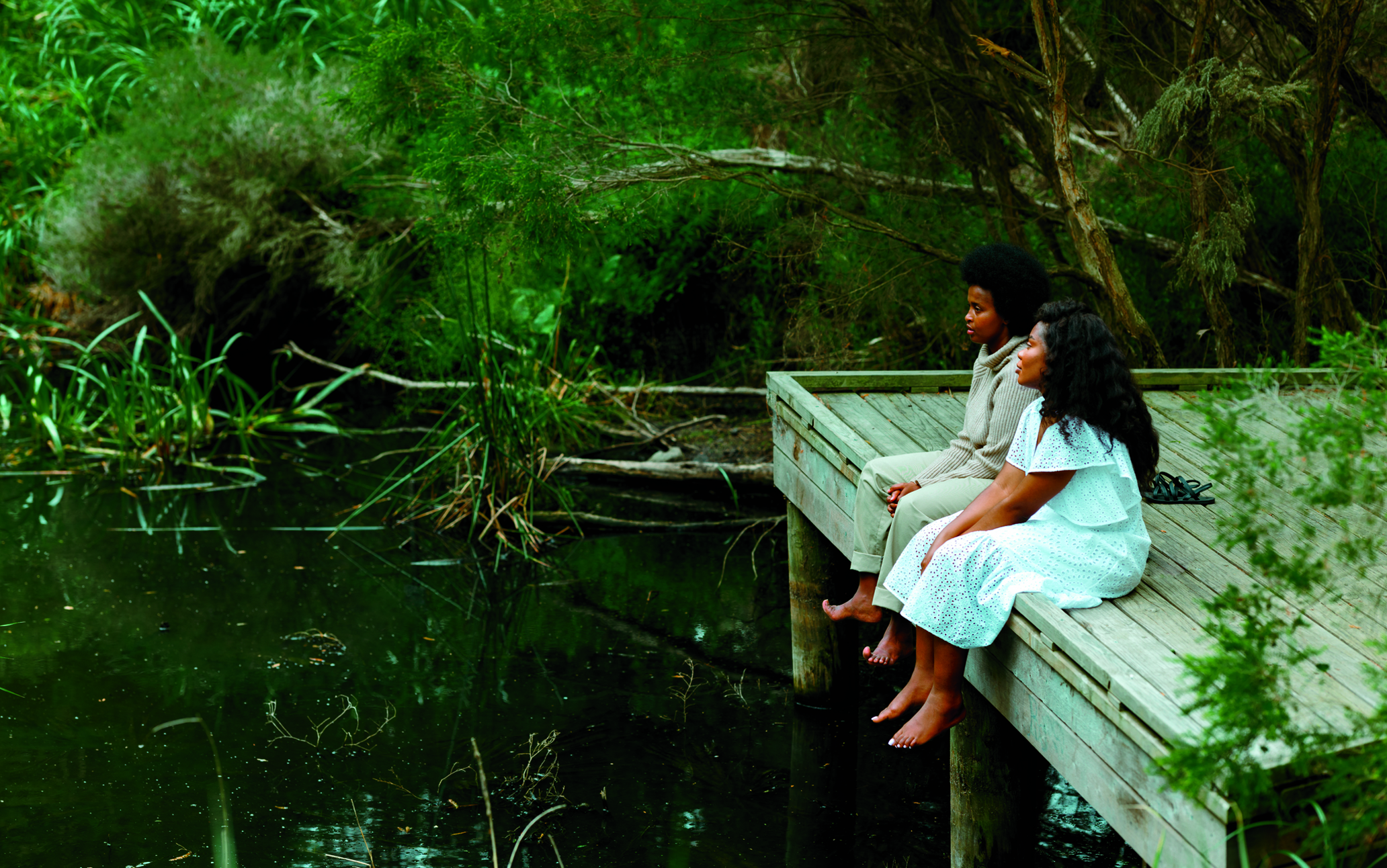wani toaishara
23.02.2024 - 23.03.2024
The Uncanny
and The Magnificent is research, and the result of research by wani
toaishara over the past four years. It explores Afrophobia and its
manifestations. Challenging us to think through what informs our politics of
safety and unsafety, how colourism, ableism, body type, class, expressions of
gender, sexuality, and the ways we talk all deem/ impact (un)safety as well as
what affords us protection not just from bodily harm, policing, and
surveillance but also from the violence of material deprivation and what
happens to those permanently read as “threatening”.
Through the relational narrative of wani’s Black African gaze localised within Naarm/Melbourne, the works in this exhibition ask us to look alongside the precarity of Blackness or the ways in which Blackness has been made precarious, disposable, and fungible. In the book A Black Gaze: Artists Changing The Way We See, author Tina M. Campt speaks on how the ‘gaze’ in the name of Blackness is about subverting structures of domination for disposed groups of people. A Black gaze is a gaze that puts us in relationship to Blackness and anti-Blackness in a way that requires us to do certain kinds of ethical work.
This exhibition brings into question the premise of representation while challenging its viewer to observe the difference between representation and presentation. It presents the “Black body” through a practice of relational accountability. By implementing relationality and place, we are made to consider the position of the person in relation to the subject, and the person not only as a subject but one with the agency to object to their subjectivity.
wani toaishara’s practice explores and interrogates conventional representations of Black life through poetry, as well as still and moving images. His imagery draws on photographic languages including studio portraiture, staged tableaux, and the family album.
The Power of Questioning
by Olivia Poloni
wani toaishara is a photographer, film maker, producer, performer and writer. His practice is an exploration of loss, connection, spirit, agency, reciprocity and time, and he approaches these issues and his collaborators with depth, nuance, authenticity and trust. The visual care that he affords his collaborators and practice result in arresting works that celebrate Black agency and visibility in a largely Afrophobic world.
The exhibition The Uncanny and the Magnificent consists of portrait photography interspersed among a wall paper mural, video works and an installation room. The mix of media takes viewers on a multilayered journey through contemporary and archival works looking at Black sociality in urban spaces. In toaishara’s exhibition Nexus from 2022 at Blak Dot Gallery he activated personal family archival material as a visual storytelling tool. In this series toaishara has taken the same technique in both physical and memorial form by enlarging a family archive print to create a wallpaper mural and recreating, from his childhood memories, a replica of his grandmother’s living room in Bukavu, DRC. The wallpaper features his grandparents, and others, within a family setting, created mid-action, and speaks to the celebratory spirit and force of energy formerly encountered within this family living room environment. Once the viewer imagines the dynamism in such a room, and perhaps recall their own childhood grandparents’ living space and memories, questions begin to formulate. What happened to and in that safe space? Does it now only exist in the artist’s memory? Was it to a victim of forced migration, separation and loss? By placing family archives alongside contemporary works, generational issues of memory, destruction, dislocation and survival become apparent, forcing the viewer to interrogate the impact of colonialism on Africa and its diaspora both in the past and present day.
The Black female presence is represented in a variety of ways within the exhibition by utilising the collaborator’s gaze; staring at the viewer with unwavering eye contact, softly smiling, peering off into the dreamy distance, staring past the viewer. All of these images challenge the patriarchal narrative dictated by the white male gaze’s objectification of women, and moreover Black women. One work features a Black woman in a floral dress standing on a white podium, hands clutched, wearing an intricate headdress and staring almost serenely beyond the viewer. The serenity of the work is starkly shattered once the title Scramble becomes apparent; the form of a particular slave auction during the Atlantic slave trade in the West Indies and United States. Once this is understood, reading the work, and more importantly the woman’s gaze changes dramatically and we understand she is not in a position of power but the opposite. The Black female presence is also challenged in the work ZAHRA which sees a mature woman wearing a headscarf, standing in an assertive position within a contemporary domestic setting, one hand extended and an almost smile on her face, owning her space and presence in her world, but what is her safety outside of her domestic environment and within the public domain?
Intimacy plays a substantive role within this exhibition, both when reading the works of art, within the image dynamics, and understanding the relationship between collaborator and artist in creating the images. In The Uncanny and The Magnificent, we see the intimate relationship between platonic relationships and the fluidity of self and sexuality in a state of play, trust and affection. Studio photography is utilised as a safe space for experimentation. Here expressions of glamour and affection unfold with the use of costume, jewellery and drapage to hold space in time. In BRIAN a young Black man adorned with jewellery, a yellow band across his eyelid, wearing a durag, lips partially parted with a serious and questioning stare. He seems mid-movement, with hands, out of the picture, resting on a support and about to push himself off and turn away. It’s still and contemplative but with external energy and power, bringing forth agency and self-determination. In Sunday’s Best two Black men stand in an affectionate embrace, facing the camera. They are standing in a domestic personal library, holding each other in love, familiarity and solidarity. How are the bodies of these men perceived in the public realm both historically and at present? How does their presence differ in the safety of these photographs compared to the Afrophobic streets that contain the many legacies of colonialism?
The Uncanny and The Magnificent is an exhibition that creates connections across time and place to respond to historical, social, political and race ecologies. It uses the power of art to challenge ideas and interrogate legacies of colonialism that are still present today and are ever present in the policing, safety and unsafety in our streets. It forces viewers to question, and question again, the artist’s intentions within the exhibition, which in turn asks them to challenge, and challenge again, the dominant societal narrative we all live.
wani toaishara (b. 1990, Bukavu, D. R. Congo) is a Congolese artist whose works span various mediums including image-making, performance, installation and film. His practice explores Black life and representation, dislocation and Indigeneity as well as the effects of colonialism on Africa and its diaspora, often using personal stories to create intimate works. The use of urban spaces in his films is significant in the way he transforms banal spaces into dramatic stages for exploration and reflection.
wani has exhibited and performed at Arts Centre Melbourne, Sydney Opera House, Blak Dot Gallery, Wyndham Art Gallery, Arts House, and National Gallery Victoria, among other spaces. He has also received numerous awards and fellowships including a Green Room award, Arts House Evolution Award, Wyndham Art Prize, Darebin Art Prize, and most notably the Josephine Ulrick and Win Schubert Photography award.
Through the relational narrative of wani’s Black African gaze localised within Naarm/Melbourne, the works in this exhibition ask us to look alongside the precarity of Blackness or the ways in which Blackness has been made precarious, disposable, and fungible. In the book A Black Gaze: Artists Changing The Way We See, author Tina M. Campt speaks on how the ‘gaze’ in the name of Blackness is about subverting structures of domination for disposed groups of people. A Black gaze is a gaze that puts us in relationship to Blackness and anti-Blackness in a way that requires us to do certain kinds of ethical work.
This exhibition brings into question the premise of representation while challenging its viewer to observe the difference between representation and presentation. It presents the “Black body” through a practice of relational accountability. By implementing relationality and place, we are made to consider the position of the person in relation to the subject, and the person not only as a subject but one with the agency to object to their subjectivity.
wani toaishara’s practice explores and interrogates conventional representations of Black life through poetry, as well as still and moving images. His imagery draws on photographic languages including studio portraiture, staged tableaux, and the family album.
The Power of Questioning
by Olivia Poloni
wani toaishara is a photographer, film maker, producer, performer and writer. His practice is an exploration of loss, connection, spirit, agency, reciprocity and time, and he approaches these issues and his collaborators with depth, nuance, authenticity and trust. The visual care that he affords his collaborators and practice result in arresting works that celebrate Black agency and visibility in a largely Afrophobic world.
The exhibition The Uncanny and the Magnificent consists of portrait photography interspersed among a wall paper mural, video works and an installation room. The mix of media takes viewers on a multilayered journey through contemporary and archival works looking at Black sociality in urban spaces. In toaishara’s exhibition Nexus from 2022 at Blak Dot Gallery he activated personal family archival material as a visual storytelling tool. In this series toaishara has taken the same technique in both physical and memorial form by enlarging a family archive print to create a wallpaper mural and recreating, from his childhood memories, a replica of his grandmother’s living room in Bukavu, DRC. The wallpaper features his grandparents, and others, within a family setting, created mid-action, and speaks to the celebratory spirit and force of energy formerly encountered within this family living room environment. Once the viewer imagines the dynamism in such a room, and perhaps recall their own childhood grandparents’ living space and memories, questions begin to formulate. What happened to and in that safe space? Does it now only exist in the artist’s memory? Was it to a victim of forced migration, separation and loss? By placing family archives alongside contemporary works, generational issues of memory, destruction, dislocation and survival become apparent, forcing the viewer to interrogate the impact of colonialism on Africa and its diaspora both in the past and present day.
The Black female presence is represented in a variety of ways within the exhibition by utilising the collaborator’s gaze; staring at the viewer with unwavering eye contact, softly smiling, peering off into the dreamy distance, staring past the viewer. All of these images challenge the patriarchal narrative dictated by the white male gaze’s objectification of women, and moreover Black women. One work features a Black woman in a floral dress standing on a white podium, hands clutched, wearing an intricate headdress and staring almost serenely beyond the viewer. The serenity of the work is starkly shattered once the title Scramble becomes apparent; the form of a particular slave auction during the Atlantic slave trade in the West Indies and United States. Once this is understood, reading the work, and more importantly the woman’s gaze changes dramatically and we understand she is not in a position of power but the opposite. The Black female presence is also challenged in the work ZAHRA which sees a mature woman wearing a headscarf, standing in an assertive position within a contemporary domestic setting, one hand extended and an almost smile on her face, owning her space and presence in her world, but what is her safety outside of her domestic environment and within the public domain?
Intimacy plays a substantive role within this exhibition, both when reading the works of art, within the image dynamics, and understanding the relationship between collaborator and artist in creating the images. In The Uncanny and The Magnificent, we see the intimate relationship between platonic relationships and the fluidity of self and sexuality in a state of play, trust and affection. Studio photography is utilised as a safe space for experimentation. Here expressions of glamour and affection unfold with the use of costume, jewellery and drapage to hold space in time. In BRIAN a young Black man adorned with jewellery, a yellow band across his eyelid, wearing a durag, lips partially parted with a serious and questioning stare. He seems mid-movement, with hands, out of the picture, resting on a support and about to push himself off and turn away. It’s still and contemplative but with external energy and power, bringing forth agency and self-determination. In Sunday’s Best two Black men stand in an affectionate embrace, facing the camera. They are standing in a domestic personal library, holding each other in love, familiarity and solidarity. How are the bodies of these men perceived in the public realm both historically and at present? How does their presence differ in the safety of these photographs compared to the Afrophobic streets that contain the many legacies of colonialism?
The Uncanny and The Magnificent is an exhibition that creates connections across time and place to respond to historical, social, political and race ecologies. It uses the power of art to challenge ideas and interrogate legacies of colonialism that are still present today and are ever present in the policing, safety and unsafety in our streets. It forces viewers to question, and question again, the artist’s intentions within the exhibition, which in turn asks them to challenge, and challenge again, the dominant societal narrative we all live.
wani toaishara (b. 1990, Bukavu, D. R. Congo) is a Congolese artist whose works span various mediums including image-making, performance, installation and film. His practice explores Black life and representation, dislocation and Indigeneity as well as the effects of colonialism on Africa and its diaspora, often using personal stories to create intimate works. The use of urban spaces in his films is significant in the way he transforms banal spaces into dramatic stages for exploration and reflection.
wani has exhibited and performed at Arts Centre Melbourne, Sydney Opera House, Blak Dot Gallery, Wyndham Art Gallery, Arts House, and National Gallery Victoria, among other spaces. He has also received numerous awards and fellowships including a Green Room award, Arts House Evolution Award, Wyndham Art Prize, Darebin Art Prize, and most notably the Josephine Ulrick and Win Schubert Photography award.


